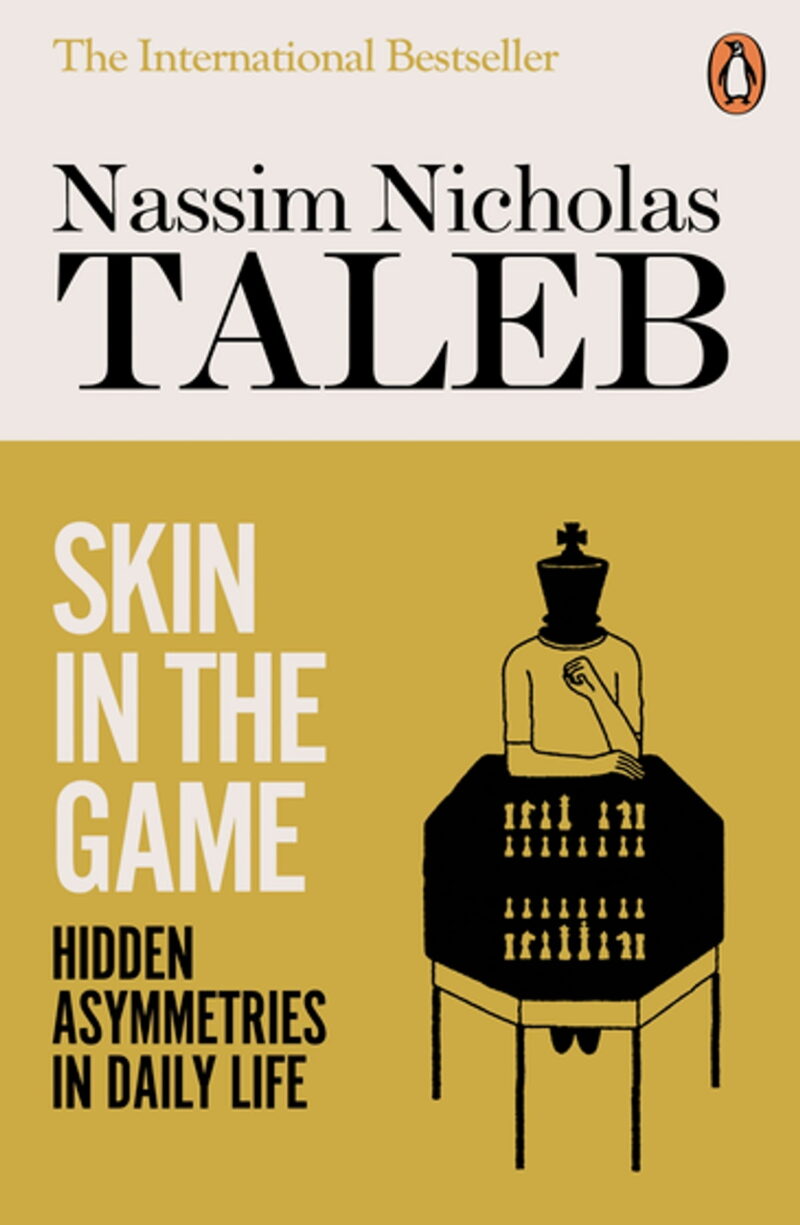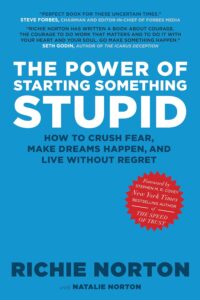Navigating the Labyrinth: Unveiling the Secrets of Sales, Trading, and Ethical Decision-Making
Explores the intricacies of sales, trading, and ethics, emphasizing the role of rationality, extreme events, and ethical considerations in decision-making.
Once upon a time in the bustling city of Wallsville, two salespeople—Ella, the Ethical, and Victor, the Vile—embarked on a quest to conquer the world of sales and trading. Their journey was guided by an ancient document, a comprehensive guide known as “Skin in the Game”
The Hero: Ella, the Ethical
Ella was a salesperson of great integrity. She believed in the power of ethical considerations and always had her customers’ best interests at heart. Ella was particularly drawn to the section of the book that discussed the “Psychology of Sales and Trading.” The quote, “What matters isn’t what a person has or doesn’t have; it is what he or she is afraid of losing,” resonated deeply with her. She used this wisdom to create a sense of urgency in her customers, but never at the expense of their needs.
The Villain: Victor, the Vile
Victor, on the other hand, was a salesperson who would stop at nothing to close a deal. He was enamored by the power dynamics described in the book, particularly the quote about Putin having the equivalent of “f*** you money.” Victor believed that the end justified the means, and he often manipulated his customers into making decisions that were not in their best interest.
The Turning Point: Black Swans and Skin in the Game
Both Ella and Victor faced the ultimate test when the market experienced a “Black Swan” event, an extreme and unpredictable situation that the document had warned about. Victor, who had always taken reckless risks, found himself on the brink of ruin. Ella, who had “skin in the game” and had always acted rationally, navigated through the crisis with minimal damage.
The Moral Lesson: Ethical Considerations and Time
As time passed, Ella’s reputation for ethical trading grew, and she became a beacon of trust in the community. Victor, however, was exposed for his unethical practices, especially after the extreme event, and his career took a nosedive. Ella often reflected on the quote from the document, “Virtue as something that goes beyond pleasing the watchers, and can actually irritate them.” Her long-term focus and ethical considerations had paid off.
The Review
“Skin in the Game” is a must-read for anyone in the sales and trading industry. It offers a multi-dimensional understanding of the complexities involved, from the psychology of sales to the importance of ethical considerations and the impact of extreme events. This book serves as a moral compass, guiding its readers through the labyrinthine world of sales, trading, and ethics. It’s a tale as old as time, but with lessons for the modern world.
And so, Ella and Victor’s contrasting fates served as a living testament to the document’s timeless wisdom. Ella continued to thrive, her business a beacon of ethical practice, while Victor became a cautionary tale, a living example of what happens when one ignores the ethical and rational guidelines laid out in this invaluable guide.
The end.
—
Skin in the Game delves into the psychological aspects that make salespeople effective and explores the world of trading. The work discusses the ethical dilemmas in the sales and trading world, touching upon both historical and modern-day practices. The concept of having a personal stake in the outcome, or “skin in the game,” is emphasized as crucial for understanding rationality and managing risks. It also discusses the impact of extreme events, or “Black Swans,” and how they can drastically affect various aspects of life, including business and decision-making. The work talks about how wealth and progress are not linear and how they can sometimes lead to degradation of well-being. It highlights the role of time and experience in filtering out what works and what doesn’t, especially in the context of extreme events. Rationality is discussed in the context of avoiding systemic ruin and is tied back to the concept of “skin in the game.”
It mentions an inverted U curve to describe the point beyond which additional wealth or progress can lead to negative outcomes. The author reflects on the journey of writing the series of which this is a part, indicating that it is a continuation of a larger body of work. It ends with a series of maxims and footnotes that provide additional context and explanation for various concepts discussed. These points offer a glimpse into the multifaceted topics covered, making it a comprehensive guide for those interested in the complexities of sales, trading, ethics, and risk management.




